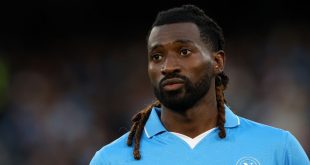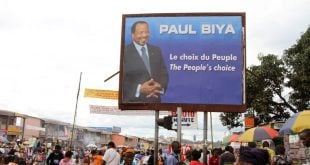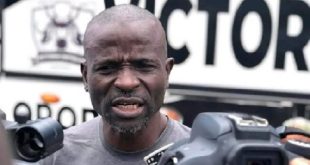Globe Echo | After Algeria and Rwanda, Emmanuel Macron opened a third memorial front on a little-known subject: the “Cameroonian war”, which opposed the independence activists of the Union of Cameroonian Populations (UPC), created in 1948 , to the French troops then to the authorities resulting from independence. A fierce and almost forgotten repression.
During his trip to Yaoundé on July 26, 2022, the French President and his Cameroonian counterpart, Paul Biya, proposed to create a commission composed of historians from both countries, responsible for ” turn on the light ” on the attitude of the French authorities before and after Cameroon’s formal independence on 1er January 1960. “It’s like a subject that has been repressedsaid Mr. Macron. It is clear that there was a war, that there were exactions and that there were martyrs. »
The commission, whose work must focus on “the role and commitment of France in Cameroon in the fight against independence and opposition movements between 1945 and 1971”, is bicephalous. On the one hand, the Cameroonian singer Blick Bassy is in charge of the artistic and memorial component. On the other, the French historian Karine Ramondy presides over the research section. This specialist in Africa in the XXe century was surrounded by fourteen historians (seven French and seven Cameroonians). Their conclusions are expected by the end of 2024.
After Rwanda and Algeria, what is the need for a history and memory commission devoted to Cameroon?
The desire is to write a story shared between France and Cameroon and to work on a period that is still traumatic today. For years, Cameroonians could not talk about this story: they whispered it. Repression for some, amnesia for others, this memory is buried. The independence activists of the UPC and their supporters were violently opposed. This repression existed before and after independence, since it continued under the government of Ahmadou Ahidjo, the first president of the Republic of Cameroon.
“We must hurry to meet all these witnesses before their memory fades”
This commission will be an opportunity to free speech and open an intergenerational dialogue. Young Cameroonians and the diaspora will surely ask their grandparents to tell them what happened. Many of them do not know their history well, the national heroes of this period were recognized only very late. People who are still alive can help us shed light on this story, in particular the widows of Ruben Um Nyobè, the charismatic leader of the UPC. We must hurry to meet all these witnesses before their memory fades: it is time to take stock of their stories.
Does the choice of a delimitation going from 1945 to 1971 seem favorable to you?
These are the correct bounds. No one is fooled anymore: the French presence does not stop at the independence of Cameroon. We must document what happened between 1960 and 1971. This means, of course, studying the archives of Jacques Foccart [le « Monsieur Afrique » du général de Gaulle], but also the diplomatic and military archives as well as those of certain witnesses of this “political transition”. I am thinking in particular of those of General Max Briand, who could bring us new and interesting insights.
It is also necessary to get out of a binary vision France against Cameroon. We know that there were Cameroonians, sometimes formed into militias, who were side of the French to fight against the UPC. There are not only French responsibilities. We will also have access to Cameroonian archives. Our job is to bring elements and nuances that today are not always audible or visible in the debates.
What does the period 1945-1971 say about France?
She says a visceral attachment to her colonies even though – I remind you – Cameroon has never been a colony. It was treated the same despite its status as a Trust Territory of the League of Nations (SDN) first, then of the UN [mandat administré par la France et le Royaume-Uni].
What meaning do you want to give to the commission that you will co-lead?
I managed to put together a team of Cameroonian and French specialists, some of whom teach elsewhere in Europe. Some work on colonial violence, on military history; others on student movements or internment camps. In this regard, I also wanted to associate a specialist in the Algerian war, to try to see the points of comparison between these two conflicts. I also have wanted us to include young researchers in our team, because the report that we will submit by December 2024 is not intended to stop at the end of the mission.
Exactly, we talk about the war in Algeria, the war in Indochina, but never about Cameroon. Why ?
The “Cameroon war” is still not taught. It is totally absent from school curricula in France. This must be remedied: what distills knowledge is school – and a former high school teacher tells you so. Look at everything that had to be done for people to talk about the Algerian war… How long did it take to enter the school curriculum? It took thirty years of academic work, documentaries, press articles for it to have a significant place.
Concerning Cameroon, research has been delayed. Books like Cameroon! [de Thomas Deltombe, Manuel Domergue et Jacob Tatsitsa, publié en 2011] were salutary and began to initiate reflection on this conflict. The Cameroonian writer Mongo Beti was one of the first to write about this conflict, then Achille Mbembe, Meredith Terretta and other historians followed. My thesis [publiée chez L’Harmattan en 2020] focused on the political assassination of African leaders such as the Cameroonian separatists Ruben Um Nyobé or Félix Moumié. All of this work has generally remained in the academic and activist spheres, so our mission is to make it known to the general public.
Your commission will be able to access the “secret-defense” archives. What do you expect to find there?
During my thesis, I did not have access to certain archives. There are assassinations that are less documented than others and I hope that these new documents will shed light on hasty trials like that of Ernest Ouandié in 1971, one of the last great leaders of the UPC , and on the executions of opponents like Martin Singap, killed in 1961. Who fired? Who gave the order? We need to understand and accurately reconstruct the facts and responsibilities. I think there is still a lot to say.
“We must dig, identify actors who have gone under the radar”
And beyond the 230 boxes that are offered to us, among others by the historical service of Defense, we must dig, investigate personalities who have not been studied enough, identify actors – and actresses – who have passed under the radar. Beyond the national archives, grandsons of French soldiers or former Cameroonian guerrillas have already contacted us to entrust us with their private archives. That is to say the expectation that this commission arouses.
As for Algeria and Rwanda, is Emmanuel Macron ready to recognize certain responsibilities of France in Cameroon?
Absolutely. At the end of the commission’s work, we will have proposals for memorial acts to make to the political authorities. It’s still too early to talk about it.
And what about the Cameroonian state?
I don’t know, but with seven Cameroonian researchers working in the commission, we will all take our share of the responsibility. I can tell you that both presidents are involved in this project.
Are you convinced of the sincerity of Emmanuel Macron’s memorial work?
Emmanuel Macron is President of the Republic, I am a historian; our concerns are not necessarily the same. I think it’s the right time to start this work, I see it as a historic opportunity. Such a project cannot be refused and I would not have accepted this mission if it were not independent. History takes time to be written and it is never finished being written.
 CameroonOnline.org Cameroon news, Actualité Camerounaise, live Web TV & Radio, World News and a lot more
CameroonOnline.org Cameroon news, Actualité Camerounaise, live Web TV & Radio, World News and a lot more





can we immagine Vietnam or Cambodia setting up a commition with french agressors to write the history of the crimes committed in both countries by france?
why did cambodia and Vietnam get rid of french language and christianity and install thier own language,and budhism as national spirituality?why did cameroun judge it right to remain under linguistic and spiritual occupation of conquering france?why is it not cameroon that did what vietnam and cambodia did and both countries the other way round?